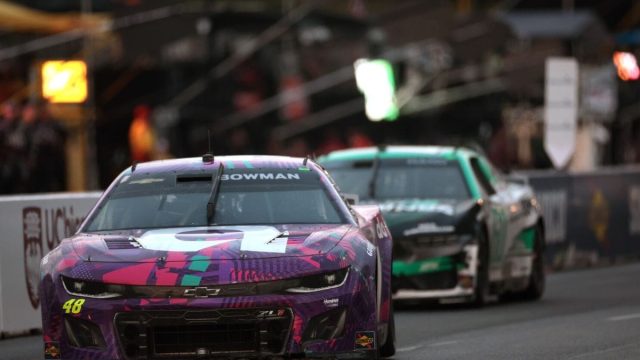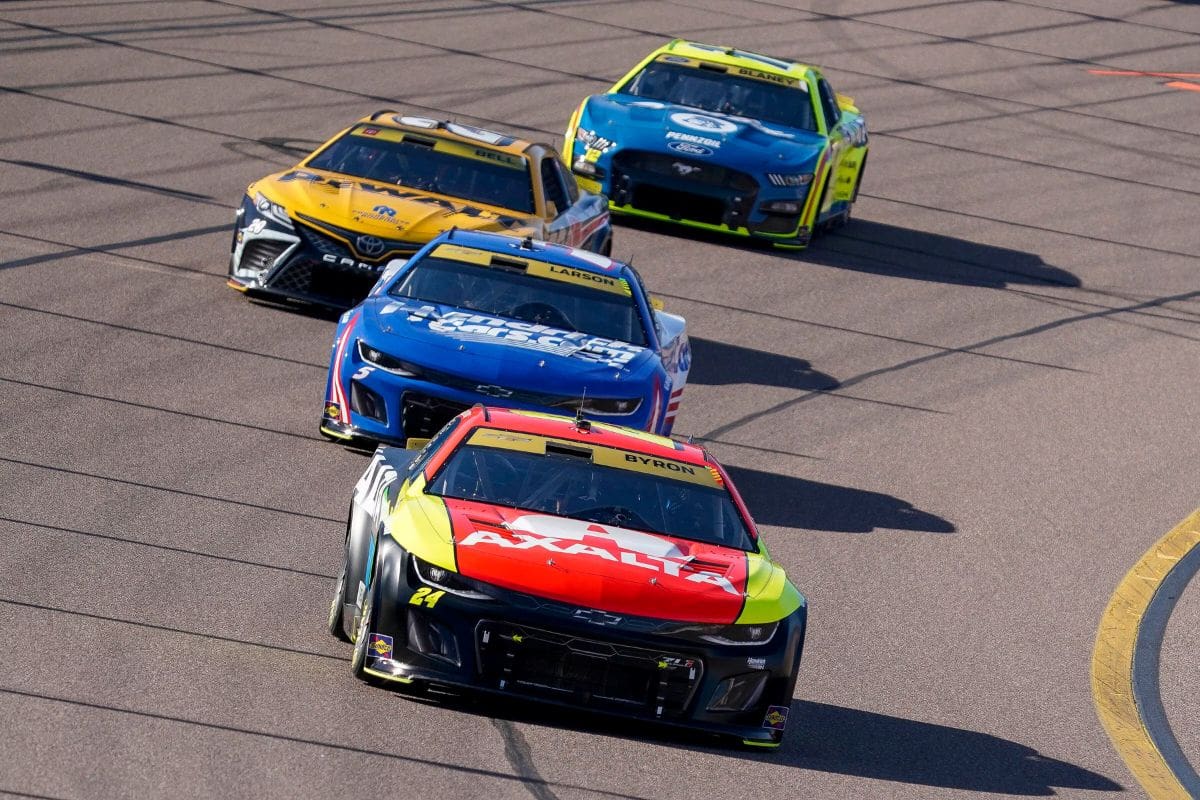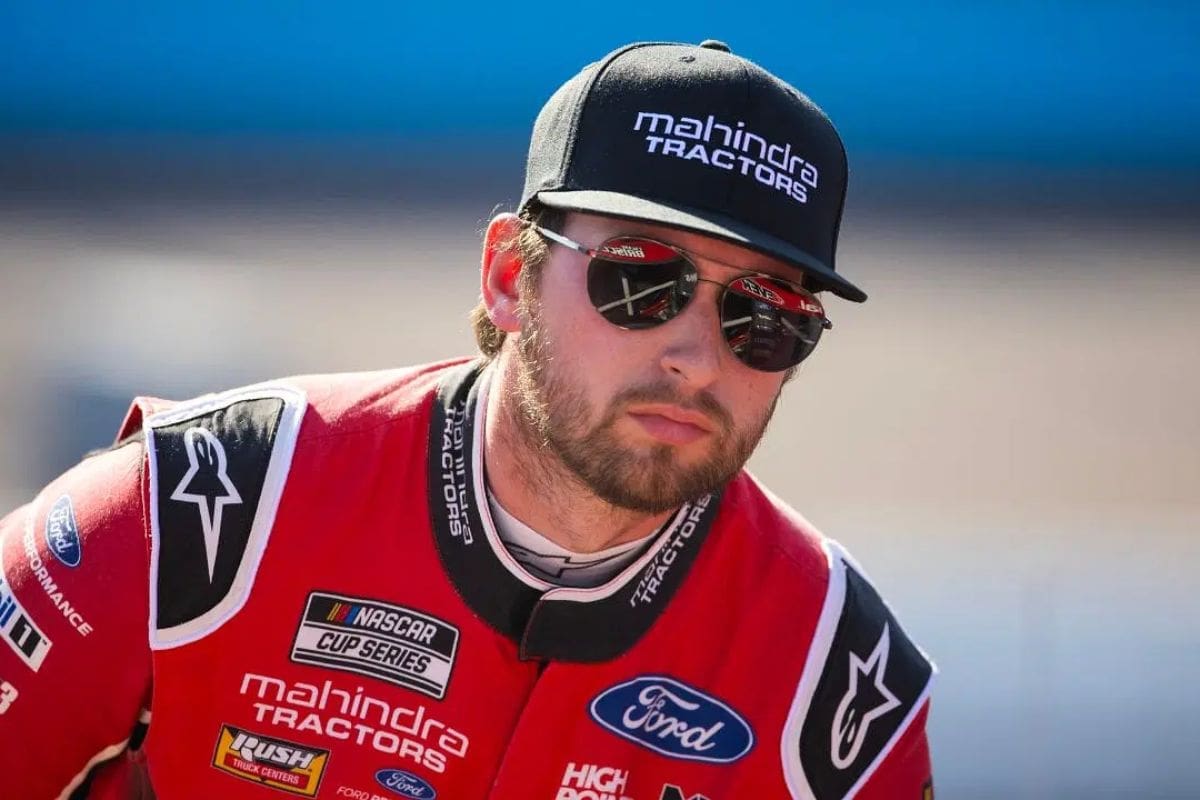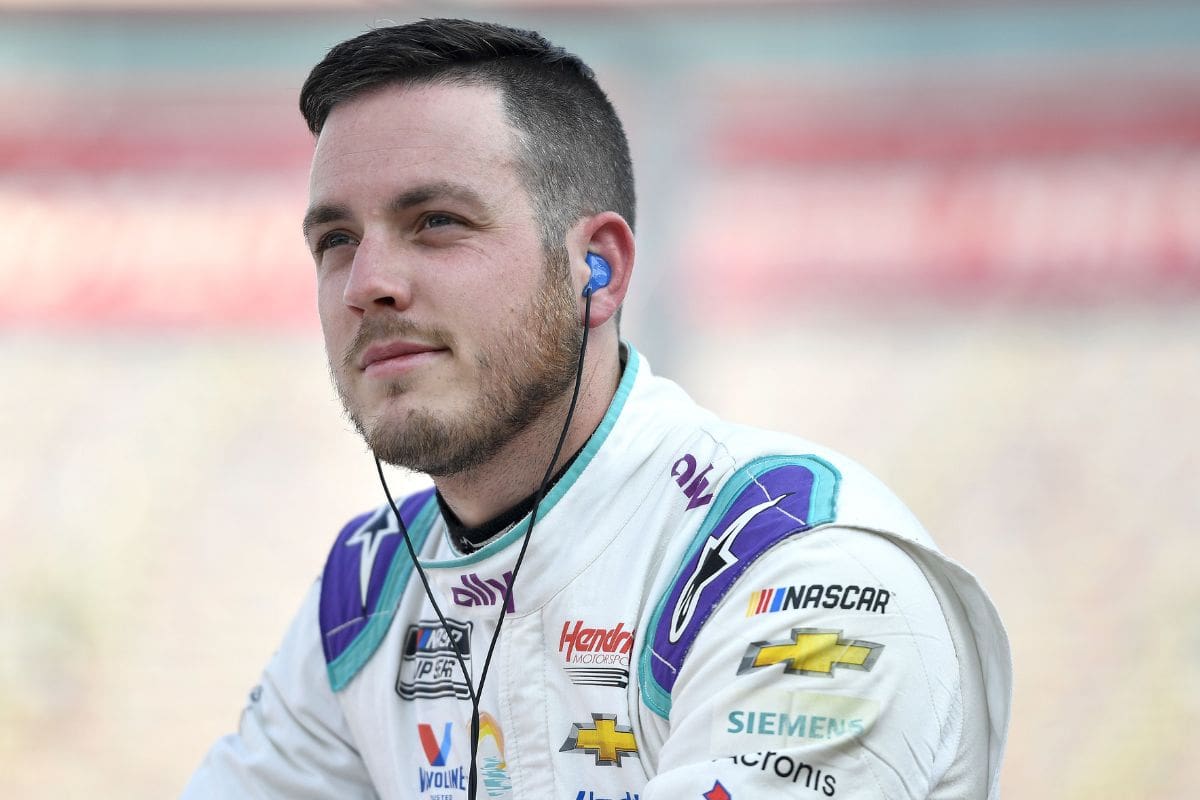NASCAR Drivers Who Don’t Deserve a Playoff Spot: As the NASCAR regular season draws to a close, the debate intensifies over which drivers truly merit a playoff spot, particularly in the case of Martin Truex Jr. His season has been marked by an alarming lack of victories and a troubling trend of poor finishes, raising questions about his competitiveness and readiness for postseason challenges. With only four playoff points to his name and a series of disappointing results, one must consider whether Truex’s storied career can withstand the scrutiny of a playoff system that demands excellence. What implications does this have for his future in the sport?
Key Highlights
- Martin Truex Jr. has no victories this season, ranking 16th with only four playoff points, highlighting his underperformance.
- Consistent struggles are evident, with six finishes of 24th or worse in the last seven races diminishing playoff viability.
- Truex’s team issues reflect a disconnect between vehicle performance and driver confidence, raising further doubts about playoff contention.
- Compared to more successful drivers, Truex’s lack of wins and poor finishes suggest he may not merit a playoff spot.
- The playoff format emphasizes consistency, and Truex’s current trajectory is insufficient for competitive advancement in the postseason.
NASCAR’s Regular Season Conclusion
The finale of NASCAR’s regular season marks a vital moment in the racing calendar, where the performance of drivers is scrutinized under the weight of playoff implications. As the dust settles after the Darlington race, the glaring contrast between those who have secured their playoff berths and those who remain on the fringes becomes painfully apparent. This dichotomy serves as a litmus test for the skill, consistency, and adaptability of drivers throughout the season.
Drivers like Kyle Larson, Christopher Bell, and Tyler Reddick have not only showed the ability to clinch victories but have also shown a penchant for maintaining high performance under stress. Their multiple wins highlight a mastery of both strategy and execution, positioning them as formidable contenders in the playoff landscape.
Conversely, the struggles of drivers such as Daniel Suárez, Chase Briscoe, and Martin Truex Jr. raise significant questions about their readiness for the heightened stakes of the postseason.
The inconsistency displayed by these latter drivers signals a potential vulnerability that could be exploited by their competitors. In a playoff format where every point counts, the inability to perform consistently can quickly translate into early exits.
This year’s finale of the regular season serves not only as a selection process for the playoffs but also as a revealing commentary on the evolving nature of racing excellence. As the playoffs approach, the narrative will shift to whether those who faltered can rise to the occasion or if their shortcomings will ultimately define their season.
Daniel Suárez’s Playoff Struggles
Daniel Suárez’s playoff struggles exemplify the challenges faced by a driver who, despite a singular victory, has failed to maintain the consistency necessary for postseason success. His unexpected success at Atlanta provided a vital lifeline, enabling him to rank 11th with a modest six playoff points.
However, this singular achievement highlights a more troubling narrative: without that victory, Suárez’s season would have been deemed inadequate for playoff competition, revealing a team that has struggled to establish itself as a formidable player in the NASCAR landscape.
Throughout the season, Suárez has recorded only one more top-five finish, casting doubt on his ability to compete effectively against the sport’s elite. This lack of performance consistency raises questions about the comprehensive competitiveness of Trackhouse Racing.
In a playoff format that rewards not just victories but also consistency and resilience, Suárez’s sporadic successes are insufficient to secure a lasting legacy in the postseason.
As the playoffs loom, it becomes increasingly evident that Suárez’s position is precarious. A single win at a chaotic race does not equate to the sustained excellence required to advance through the rounds.
Chase Briscoe’s Season Performance
Amidst the swirling narrative of the NASCAR playoffs, Chase Briscoe’s season performance stands as a demonstration to both potential and inconsistency. The driver of the No. 14 Ford Mustang has had a tumultuous year, characterized by fleeting success juxtaposed with disheartening struggles.
Although he clinched a victory at the Cook Out Southern 500, Briscoe’s comprehensive season reveals a more complex picture.
His highs and lows can be summarized as follows:
- One Win: Briscoe boasts a single win this season, which came at Darlington—an impressive feat but insufficient to mask his comprehensive performance.
- Low Finishes: He has faced several disappointing results, including a 31st place finish at Michigan and a 34th at Sonoma, indicating a lack of consistency.
- Playoff Points: With only five playoff points and ranking 13th, his position is precarious, leaving him vulnerable in the playoff landscape.
- Team Decline: Stewart-Haas Racing, his team, is reportedly on a downturn, with plans to cease operations by the end of 2024, further complicating Briscoe’s path.
While the Southern 500 win provides a glimmer of hope, it also raises questions about whether Briscoe’s sporadic brilliance is sustainable.
As the playoffs unfold, he must confront the clear reality of his season—one filled with promise yet fraught with inconsistency. The impending challenges will ultimately determine if he can rise above his current standing or if he will become another fleeting name in the ever-competitive NASCAR arena.
Martin Truex Jr.’s Underwhelming Season
Chase Briscoe’s inconsistent expedition this season sharply contrasts with the struggles faced by Martin Truex Jr., a veteran driver whose performance has been markedly lackluster. The 2017 NASCAR Cup Series champion, now a driver for Joe Gibbs Racing, finds himself entangled in a quagmire of underachievement as he prepares for what is anticipated to be his final season.
Truex’s inability to secure a single victory this year is a glaring indictment of his current form, especially when juxtaposed against his illustrious past. Ranked 16th in the standings with a meager four playoff points, Truex’s path has been wobbly at best.
His recent performances paint a troubling picture; finishing 24th or worse in six of his last seven races is indicative of a driver struggling to regain control. This dismal stretch has seen him plummet from fourth to ninth in the points standings, raising notable questions about his competitive edge and mental fortitude.
As the playoffs approach, Truex’s struggles not only challenge his legacy but also spotlight the broader issues within his team. His lack of wins and consistent top finishes suggests a disconnect, whether it be in vehicle performance or driver confidence.
If Truex is to depart the sport on a high note, he must address these shortcomings swiftly. Absent a resurgence, his playoff aspirations appear diminished, leaving fans and analysts similarly to ponder if this once-great driver can reclaim his former glory before it’s too late.
Alex Bowman’s Playoff Challenges
Alex Bowman is ranked 12th in the standings with only 5 playoff points to his credit. The No. 48 Hendrick Motorsports driver did manage to win a race at the Grant Park 165 in Chicago and earned a few top finishes, including a 2nd place result at the Daytona 500. However, his overall performance has been underwhelming. The 31-year-old is ranked 25th in the series for laps led with only 14 laps all season. To put that into perspective, several drivers like Corey LaJoie, John Hunter Nemechek, and Justin Haley, who did not make the playoffs, have all led more laps. Consistently running up front and leading laps is crucial for success in the playoffs, and so Bowman’s chances of making it to the final four are extremely low.
While Alex Bowman has secured a spot in the playoffs through a singular victory, his general performance this season raises considerable concerns about his competitiveness.
As the No. 48 Hendrick Motorsports driver, Bowman’s resume includes a win at the Grant Park 165 and a strong runner-up finish at the Daytona 500. However, these highlights are overshadowed by a lack of consistent performance throughout the season.
Bowman currently sits 12th in the standings with a mere five playoff points, which is far from impressive. His ranking of 25th in laps led, with only 14 laps led all season, clearly demonstrates his struggles.
This statistic is particularly alarming when compared to drivers who failed to qualify for the playoffs, such as:
- Corey LaJoie
- John Hunter Nemechek
- Justin Haley
All of whom have led more laps than Bowman. This glaring disparity raises serious questions about Bowman’s ability to contend in the playoffs.
Consistently running at the front and leading laps is not just a prerequisite for playoff success; it is the foundation upon which championship runs are built.
Given his current path, Bowman’s chances of advancing to the final four appear exceedingly slim. With playoff intensity ramping up, he must find a way to boost his performance, or risk being overshadowed by more competitive drivers.
News in Brief: NASCAR Drivers Who Don’t Deserve a Playoff Spot
The analysis of Martin Truex Jr.’s season reveals a pronounced deviation from the competitive benchmarks necessary for playoff eligibility in NASCAR. With no victories and an alarming sequence of poor finishes, Truex’s performance highlights a troubling inconsistency that undermines his legacy. As playoff aspirations loom, the pressing need for considerable improvement becomes evident. Without notable changes, the prospect of Truex contending for a championship remains bleak, reflecting broader challenges faced by drivers in this highly competitive arena.
ALSO READ: Top NASCAR Drivers to Become Future Champions: Who Will Rise?



